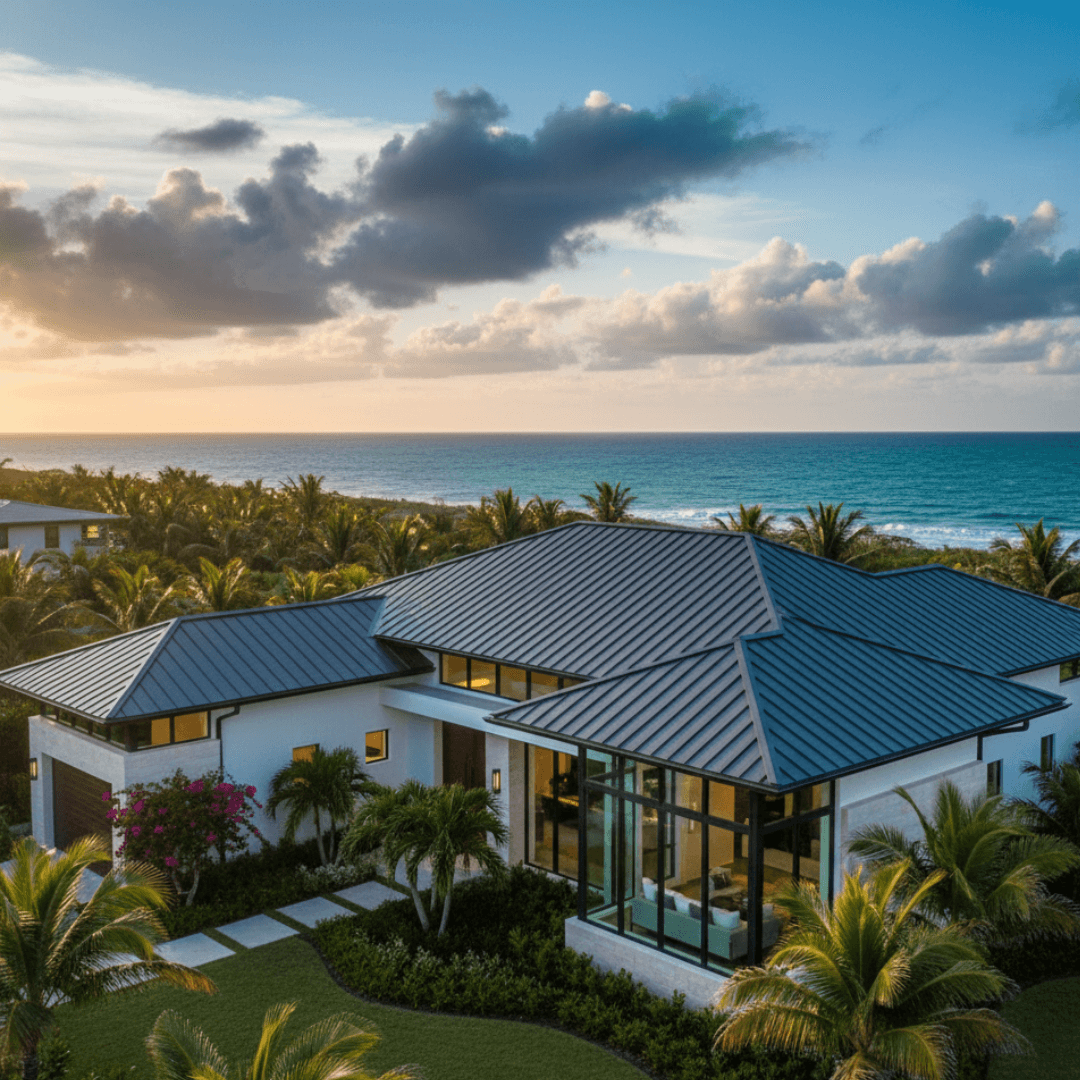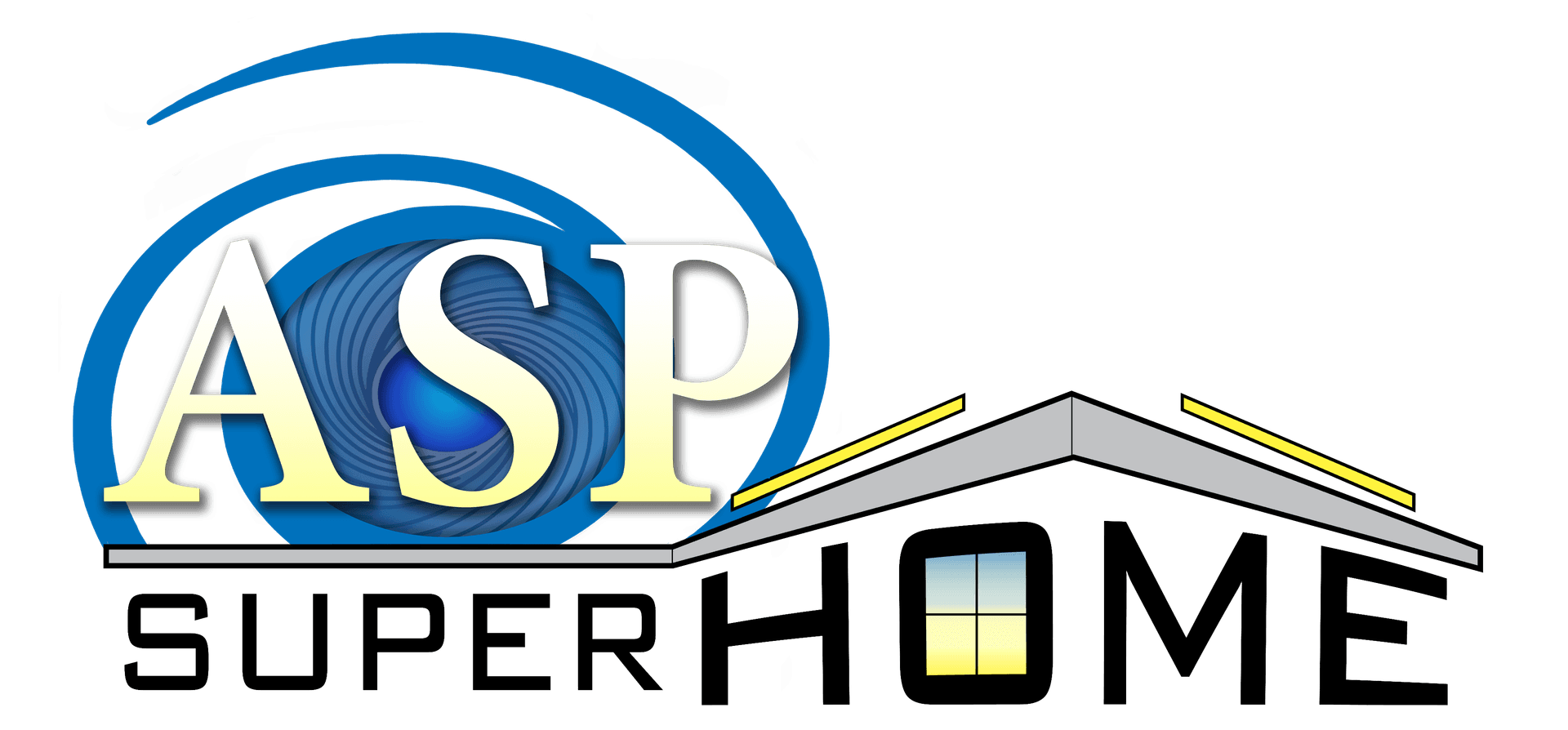Coastal Homes: Why Metal Roofs Resist Salt Air Better

Understanding the Challenge of Coastal Environments
Living near the coast offers breathtaking views, but it also presents unique challenges for homeowners especially when it comes to protecting their property from salt air corrosion.
In areas like Miami and Palm Beach, the salty breeze can be as harsh on building materials as it is refreshing on a hot day.
Salt laden air accelerates oxidation, leading to the premature decay of many traditional roofing materials such as asphalt shingles or untreated steel. Over time, moisture and salt combine to create an ideal environment for corrosion, drastically reducing the lifespan of unprotected roofs.
That’s why many homeowners along Florida’s coastlines are turning to metal roofs a durable, long term solution engineered to resist rust, corrosion, and wind damage.
To further enhance home protection, experts often recommend combining metal roofing systems with Statewide windows or other top impact window brands in Florida, which add hurricane resistance and improve energy efficiency.
Why Metal Roofs Excel in Coastal Areas
Modern metal roofs are designed to stand up to the harshest elements. The key lies in their protective coatings and materials, which make them particularly effective in coastal environments.
1. Corrosion Resistant Materials
High-quality metal roofing panels are made from aluminum, galvalume, or coated steel, each offering specific advantages:
Aluminum roofs are naturally resistant to rust, making them ideal for homes near the ocean.
Galvalume steel combines zinc and aluminum coatings to protect against corrosion and scratches.
Copper and zinc roofs are premium options that develop a natural patina, providing long-lasting beauty and resilience.
2. Protective Coatings and Treatments
Most metal roofs are treated with PVDF (polyvinylidene fluoride) coatings an advanced paint system that resists UV rays, humidity, and salt exposure. These coatings act as a barrier, keeping corrosive agents away from the metal surface.
Additionally, applying sealants or anti corrosion primers extends the roof’s durability and helps maintain its aesthetic appeal for decades.
3. Energy Efficiency and Reflectivity
In coastal regions, where sunlight and humidity are constant, reflective metal roofing helps reduce indoor temperatures and lower energy costs. This makes it an eco friendly choice that complements impact resistant Statewide windows, enhancing both performance and comfort.
Maintenance Tips for Coastal Metal Roofs
Even though metal roofs are highly resistant to salt air, regular maintenance is essential for maximizing longevity.
Here are a few expert tips:
Rinse periodically: Gently rinse your roof with fresh water every few months to remove accumulated salt residue.
Inspect fasteners and flashing: Tighten or replace any loose screws to prevent water infiltration.
Reapply protective coatings: Depending on exposure levels, recoating every 10–15 years helps maintain corrosion resistance.
Clean debris: Keep gutters and roof valleys clear of leaves, sand, or branches.
These preventive actions ensure your roof continues performing optimally for decades.
Pairing roof upkeep with Statewide windows or other impact resistant systems helps maintain a fully protected, weather ready home.
Environmental and Financial Benefits of Metal Roofs
Beyond durability, metal roofs offer environmental advantages that make them ideal for eco-conscious coastal homeowners:
Recyclable materials: Most metal roofing materials are made from 25–95% recycled content and can be fully recycled at the end of their lifespan.
Energy efficiency: Reflective coatings can reduce cooling costs by up to 25%.
Longevity: Their extended lifespan minimizes landfill waste associated with frequent roof replacements.
Financially, homeowners can expect:
Lower insurance premiums (due to hurricane and fire resistance).
Increased property value thanks to the long-term durability and modern aesthetic.
Reduced maintenance and repair costs over time.
When paired with top impact window brands in Florida, metal roofs can contribute to LEED certifications and improve a home’s energy performance rating an appealing feature for buyers and investors in Miami and Palm Beach.
Choosing the Right Metal Roof Company in Florida
Selecting the right metal roof company is as crucial as the material itself. A professional installation ensures that coatings, fasteners, and underlayment are properly applied to prevent corrosion.
Look for a contractor that offers:
Experience in coastal installations and familiarity with local building codes.
Certifications for metal roofing systems and impact resistance.
Warranty coverage on both materials and workmanship.
Integration with window and door upgrades, such as Statewide windows for added protection.
A reputable metal roof company will also provide a clear breakdown of the metal roof cost per square foot, considering design complexity, slope, and location.
Building Coastal Homes That Last
In Florida’s stunning but demanding coastal regions, investing in durable, salt-resistant materials isn’t a luxury it’s a necessity.
Metal roofs offer the perfect balance of strength, sustainability, and style, making them an excellent choice for coastal homes in Miami, Palm Beach, and beyond.
By pairing a high-quality metal roof company with Statewide windows and top impact window brands in Florida, homeowners can ensure their properties remain protected, energy efficient, and beautiful for decades to come.
Whether you’re building new or upgrading an existing property, a metal roof is not just a smart investment it’s peace of mind built to last.
FAQs – Metal Roofs and Coastal Living
How long do metal roofs last in coastal environments?
With proper installation and maintenance, metal roofs in coastal areas like Miami or Palm Beach can last 40 to 70 years, depending on the material and coating.
Can salt air still damage metal roofs?
While salt air can cause corrosion on untreated metals, modern aluminum and galvalume roofs are designed to resist salt-induced damage. Regular rinsing helps prevent buildup.
Are metal roofs noisy during storms?
No, when installed with proper insulation and underlayment, metal roofs are no louder than traditional asphalt roofs during rain or wind.
What’s the best way to protect an entire coastal home?
Combine metal roofing with Statewide windows or top impact window brands in Florida for maximum protection against salt corrosion, hurricanes, and UV exposure.
